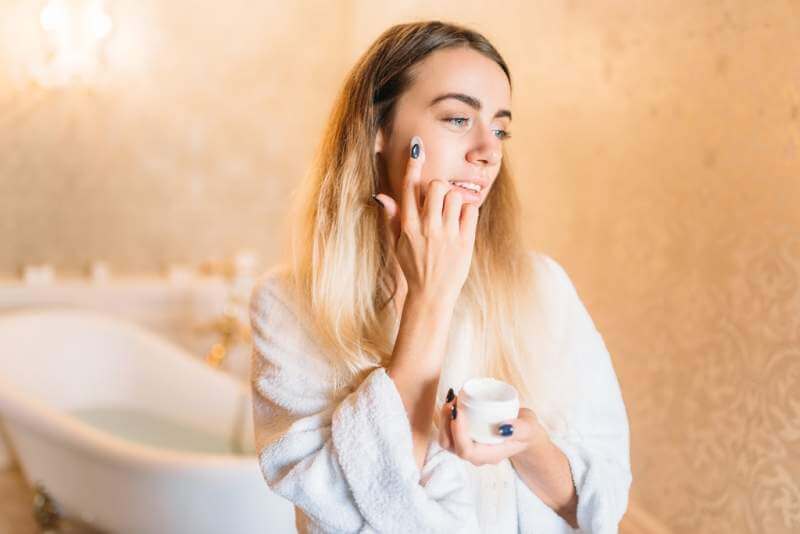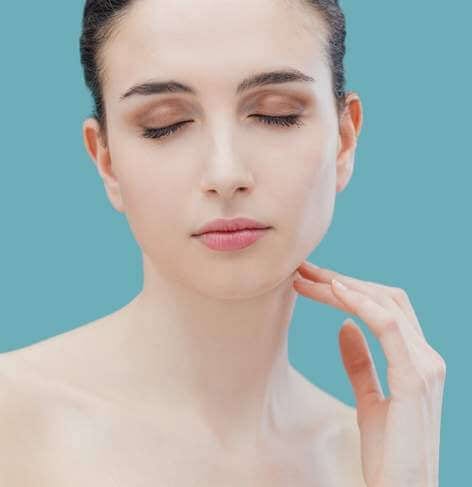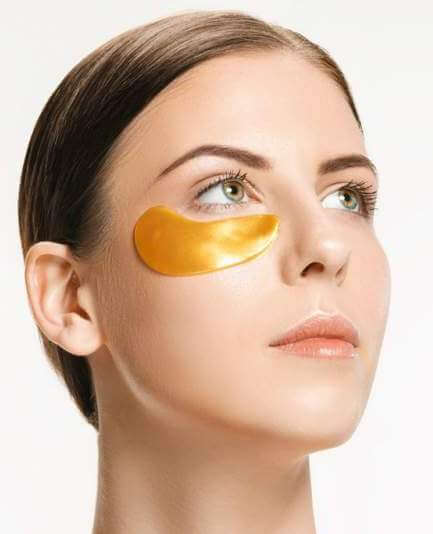Finding the skin care routine that works for you can be especially daunting considering there are different rules, products, and so-called routines that are designed to give you the kind of skin that you deserve. Sadly, while all of us have skins, no two skins are exactly alike. It is because of these individual differences that products and routines cannot really be classified as all-inclusive. What may work for your friend may not necessarily work for you. It is best to understand this even before you start making an appointment at your favourite beauty salon for that much-needed facial. So how do you create a skin care routine that is uniquely yours?
Start by Understanding the Uniqueness of Your Skin
 Understanding what makes your skin especially unique is one of the keys to creating a skin care routine that you can call your own. Beauty experts and even models who have become the ambassadors of various lines of beauty products can readily tell you that these products work because they are designed specifically for their type of skin. If you have the skin type of these individuals, then there’s a good chance that such products will be effective, too.
Understanding what makes your skin especially unique is one of the keys to creating a skin care routine that you can call your own. Beauty experts and even models who have become the ambassadors of various lines of beauty products can readily tell you that these products work because they are designed specifically for their type of skin. If you have the skin type of these individuals, then there’s a good chance that such products will be effective, too.
Sadly, not everyone fully understands what their skin needs. The only person qualified to make highly accurate assessments as to the type of skin one has is a dermatologist. If a dermatologist is not your type, you can always go to an aesthetician who can explain to you the type of skin that you may have. Of course, when it comes to the depth of knowledge regarding skin care, an aesthetician is clearly no match for a dermatologist.
There are also online tools that can help you determine the type of skin that you have. While these are perfect for DIYers, we don’t necessarily recommend them since you won’t get any answers to some of the questions that you may have about your skin.
Divide the Routine into 3 Fundamental Steps
 Once you’re done determining the type of skin that you have, it’s now time to break down the entire process of skin care into 3 fundamental steps: cleansing, toning, and moisturising.
Once you’re done determining the type of skin that you have, it’s now time to break down the entire process of skin care into 3 fundamental steps: cleansing, toning, and moisturising.
When it comes to cleansing, it’s all about the removal of dirt, dust, and particles off of your skin. You can use a cleanser that is appropriate for your type of skin. Cleansing is an essential aspect of routine skin care especially for individuals who are constantly exposed to pollution and dust. Ladies who cannot leave home without makeup on put chemicals onto their skin that has to be removed at the end of the day. Cleansing is all about preparing your skin. Cleansing the skin should be done at least twice a day, once each in the morning and night.
Toning involves re-establishing balance on your skin. Over the course of time and with exposure to chemicals, dust, allergens, pollutants, and even the harsh rays of the sun, the skin’s natural protective layer and elastic properties can diminish. Toning means re-establishing these properties of the skin so your skin will be a lot healthier. Mild toning agents should be used twice a day, right after cleansing. However, if your choice of toner happens to be a harsher one, once a day toning is recommended.
Moisturising is all about keeping your skin well-hydrated and nourished. This also helps minimise skin drying so that the skin can retain its softer, more vibrant, and more youthful glow. Think of moisturising as enabling your skin to feel refreshed.
Take Time to Determine the Best Possible Approach to Such Routines
 In the world of skin care it is critical to choose the approach that is most appropriate for your skin. Since we’ve technically broken down the process of routine skin care into three different steps, your job now is to look for products that will work best with your skin.
In the world of skin care it is critical to choose the approach that is most appropriate for your skin. Since we’ve technically broken down the process of routine skin care into three different steps, your job now is to look for products that will work best with your skin.
Individuals who have oily skin or skin that is prone to acne can choose a foaming liquid cleaner which can help break down excess sebum and dirt from your skin. Those with skin that are prone to eczema or are unusually dry should pick a cream or lotion type of cleansers hat have emollients to remove impurities and hydrate the skin. Folks with sensitive skin can pick an oil-based cleanser especially a non-comedogenic type. For mature skin a melting balm type of cleanser is recommended. For other types of skin, micellar water cleansers with soap-free formulations offer the best chance of effectively removing dirt, dust, and other particles off of one’s skin, often without the need to rinse.
When it comes to skin toning, there are a variety of products you can choose, often depending on your purpose. Alpha and beta hydroxyl acids work best when it comes to removing dead skin cells on a gentler manner while also minimizing skin dullness and improving the look of sun-damaged skin. Vitamins C and E are perfect for fighting cellular oxidation that can lead to premature aging of the skin. Hyaluronic acid deals the moisture in your skin, boosting hydration and ensuring plumpness. Green tea and rose water are perfect for skins with redness or are constantly irritated.
In terms of moisturisers, a gel type of moisturiser works best for oily skin as the formula is water-based and is quickly absorbed. Folks with dry skin can benefit from a cream or soft cream type of moisturiser while people with normal or combination skin can benefit a lot from a moisturising lotion. For people who may have sensitive skin or gets easily inflamed but definitely not prone to acne, a balm type of moisturiser works best.
These three are the basics, the foundation to a successful skin care routine. However, you also have the option to protect your skin with an appropriate sunscreen or even to use skin serums that can aid in a variety of concerns. What is crucial is you pick one that is appropriate for your skin. Having a dermatologist or an aesthetician give you a better understanding of your skin type should lay the foundation for your very own skin care routine.
About the author:
April Brodie is a renowned facialist and skin care expert and the founder of Beaute at 2001. An industry leader, April has 30 years of experience under her belt. She holds a nationally accredited certificate in safety and clinical application of Intense Pulse Light (IPL) and numerous qualifications including Advanced Skin Diagnosis and Dermal Needling.
